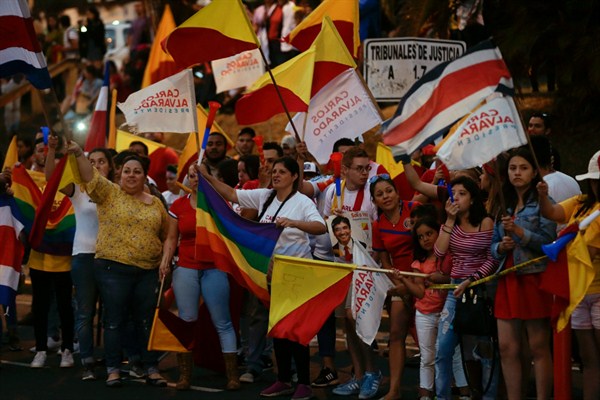On April 1, Costa Ricans returned to the polls to elect a new president in a runoff that polling suggested would be one of the closest races in their country’s history. Numerous analysts described the election as a battle between progressive and conservative values, as evangelicals are becoming more prominent politically in Costa Rica. In the end, Carlos Alvarado Quesada, a novelist and former labor minister from the center-left Citizens’ Action Party, defied the pre-election predictions to soundly defeat Fabricio Alvarado Munoz, an evangelical singer and pastor, by more than 20 points.
It wasn’t an easy road to victory for the candidate of the governing Citizens’ Action Party, which rose to power in 2014 on an anti-corruption platform. President Luis Guillermo Solis’ administration got embroiled in a corruption scandal last year involving loans for cement imports that ultimately led to the resignation of the attorney general and the arrest of senior management at the Bank of Costa Rica. The scandal contributed to an anti-establishment mood that catapulted outsider candidates from smaller parties into the spotlight. Among them was Alvarado Munoz, who was the surprise winner in the first round with nearly 25 percent of the vote.
Alvarado Munoz had been in the middle of the pack of a crowded field, but he surged to the lead in January following a ruling by the Inter-American Court of Human Rights that upended the race. The court issued an advisory opinion urging Latin American countries to legalize same-sex marriage, in response to a petition filed by Solis’ government on whether parties to the Inter-American Convention on Human Rights must recognize the economic rights of same-sex couples as well as gender identity preferences. While Solis said Costa Rica would comply with the court’s decision, Alvarado Munoz railed against it, running on an anti-gay marriage stance that resonated with some of the country’s conservative voters. His rhetoric, which also attacked secularism in general, was accompanied by an increase in reported aggression, physical and verbal, against members of Costa Rica’s LGBT community.

